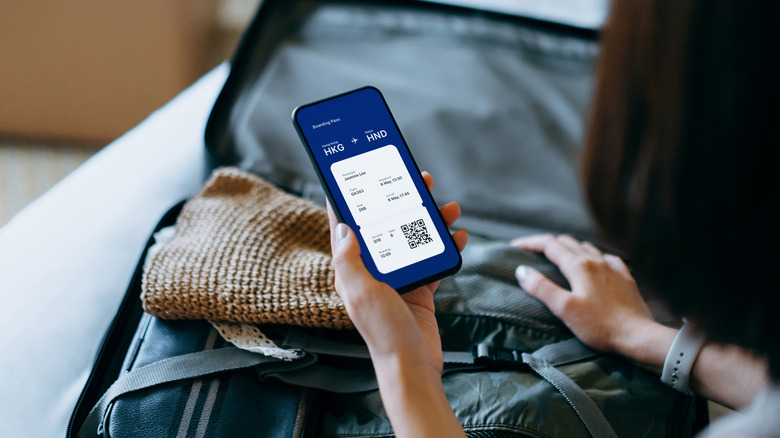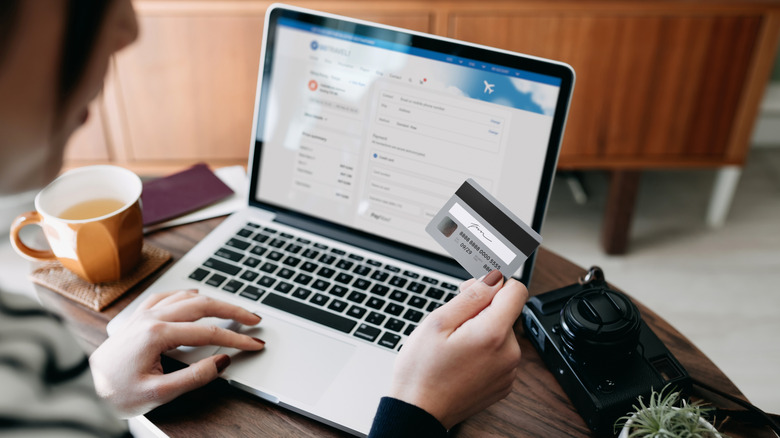A US Airline's AI Knows What You Can Afford And Prices Your Ticket Accordingly
If you're a frequent flyer who noticed that flights keep getting more and more expensive, things may get much worse now that artificial intelligence is reshaping how airfare is priced. Delta Air Lines, in particular, is making waves in the industry by revealing its plans to expand its controversial AI-driven pricing technology from 3% to 20% of its domestic flights by the end of the year. During Delta Air Lines' second-quarter 2025 earnings call, President Glen Hauenstein discusses the AI pricing tool's initial success in raising revenue, saying, "We like what we see. We like it a lot and we're continuing to roll it out."
While airline pricing has always been dynamic, thanks to human data analysts who factor in demand, resource costs, holidays, and more, AI technology introduces a new and more invasive layer. Delta has partnered with Israeli tech firm Fetcherr, and their model can scrape data to predict what you, the individual, might be willing to pay. This means crafting fare offers not based on supply and demand, but on a potential passenger's online behavior, browsing history, income estimate, location, and much more.
This is a seismic shift in how airlines do business, and passengers are the ones who stand to lose. Delta's model appears to push ethical boundaries. And if this use of personal data to extract the maximum dollar from each traveler is as profitable as Delta suggests, who knows which other airlines will follow suit. The company is laying the groundwork for a future where your ticket price reflects not how far you're going but how much the airline thinks you'll be willing to pay.
The problem with Delta's AI-driven surveillance pricing
Delta's AI ticket pricing hasn't gone unnoticed, with lawmakers raising serious concerns about how unfair the model is to consumers. A letter to the airline's CEO from Senators Ruben Gallego, Mark Warner, and Richard Blumenthal accuses Delta of engaging in "surveillance-based price setting," calling the system fundamentally anti-consumer. The letter warns that Delta's model could disproportionately target vulnerable travelers by taking advantage of "each individual consumer's personal 'pain point' at a time when American families are already struggling with rising costs."
Imagine Uber's surge pricing and apply that to airfare — that's essentially what Delta is trying to do on a massive scale. What's worse is that travelers have no way of knowing how and when they're being monitored. Delta hasn't disclosed exactly what data it uses, how it collects consent, or how consumers can opt out, if that's even possible. This black-box approach to pricing raises red flags for the Federal Trade Commission, which has warned that it could deepen inequality in access to affordable travel.
In the meantime, and in the absence of regulatory intervention, travelers who want to get the cheapest tickets possible will have to get a bit creative. It may no longer be enough to just know the best time to buy international tickets for the cheapest price. In order to actually save money when booking flights (especially with Delta), it's crucial to take defensive steps: clear your browser cookies, use incognito mode, use a VPN if possible, and compare prices across your devices. As AI becomes more widely used in airline companies, the burden remains on passengers to dodge the effects of systems designed to outsmart them.

